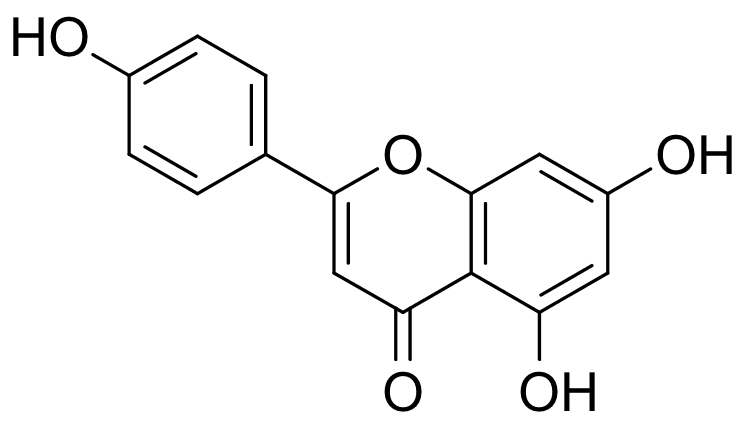Description
Apigenin is a flavonoid found in various plant sources that exhibits anticancer, antioxidative, anti-inflammatory, cognition enhancing, and neuroprotective activities. In gastric cancer cells, apigenin inhibits cell proliferation, decreases mitochondrial membrane potential, increases expression of caspase 3 and Bax, and decreases expression of Bcl-2, inducing apoptosis. Apigenin also induces microtubule depolymerization in lung cancer cells. Additionally, apigenin displays some chemopreventive potential. In aortic rings, apigenin inhibits vascular contraction. In animal models of spinal cord injury, apigenin reverses injury-induced decreases in superoxide dismutase (SOD) and glutathione peroxidase activity as well as increases in malondialdehyde; it also decreases expression of IL-1β, TNF-α, and ICAM-1. In animal models of Alzheimer’s disease, apigenin suppresses oxidative stress and decreases levels of insoluble amyloid-β (Aβ), ameliorating learning and cognitive deficits. Additionally, this compound acts as a positive allosteric modulator at GABA-A receptors. Apigenin has also been shown to reduce stem-cell like properties in triple-negative breast cancer cells, possibly due to inhibiting YAP/TAZ activity.
